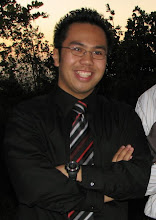
A few weeks ago, a new restaurant lit up its new fluorescent sign in Portsmouth. And on it was a big picture of Colonel Sanders in his red and white apron, tilted over and smiling. I have to say that the opening of the KFC is something that both was a win and a loss situation. On one end: It's great to have some real fried chicken in the area now, and to get dinner there could save one a few more bucks (along with time) over Subway. On another end: This stuff can kill you (if you eat it often enough, that is).
A recent report from CNN says the proximity that one is to fast food restaurants in their neighborhood is directly related to the occurrence of stroke. I don't know how much that really applies to Dominica (where there's only 4 total fast food establishments, 2 of them being Subways), but this finding in the United States is rather interesting. I guess then, that me, in my hometown back in Chicago, with 5 fast food joints within 1 block (let's see if I can remember: McDonald's, Burger King, Dunkin' Donuts / Baskin Robbins, Pizza Hut, and Nick's Gyros & More), I'm at a higher risk of stroke.
One of the most interesting points that ran across my head when I read this study, is when I read that socioeconomic implications weren't included. I gotta say that in the states that this might be the case: when someone wants some food fast, the best part is that it comes cheap.
However, living in Dominica, it seems different:
Fatty, greasy fried American fried chicken seems to be a commodity in Dominica.
Although KFC is faster than the Subway on the Ross campus, I've found out that its still not exactly as fast as it is in the states, but people are still there for the "fast food." Not to mention, seemingly with the hassle of shipping things over from the states & other various regional factors, not everything on the KFC menu you see in the states comes over here in Dominica. Case in point: every meal on the menu comes with french fries, unlike the standard homestyle options as presented in the states (you know, the cole slaw, the mashed potatoes, green beans, etc etc.... in Dominica, these are all separate options). In addition, the stuff is quite a bit more expensive than the traditional Dominican way of purchasing fruits and vegetables from the market and cooking it all by one's self. However although this was the case: the place is still packed with Dominicans (and obviously Ross students).
So, let's put it together: could the equation of Dominican Demand + KFC = Lesser lifespan of Dominicans?
I forgot to tell you one important thing... According to a BBC report in 2007, one thing that Dominica can lay good claim to is a large proportion of centenarians (22/70000, which is about three times as high as that of many developed countries). My university, Ross, is trying to figure out why this is the case. However, with the above story, is it possible to have an affect upon this proportion? Remember that before, there was only 1 KFC and that only appeared from what I assume (based on the decor in Roseau), in the last decade.
Like I said KFC's addition to Dominica has its good and its bad, but only time will tell to see how much affect it will upon the health of Dominica. It's something I'd like to see: the real effects of fast food damage on a Country's health over time. It could be bad, but knowing that there's still only 2 KFCs in all of Dominica, and with it being a "luxury" commodity in Dominica, I think that we'll still see more centenarians to come.
Don't get me wrong... I still dig the colonel, and it's quite good here in Dominica.... even with that risk of stroke. :D
Source: CNN


